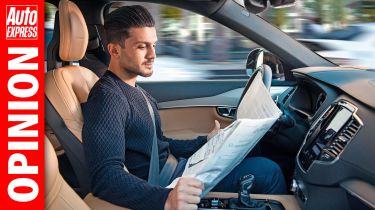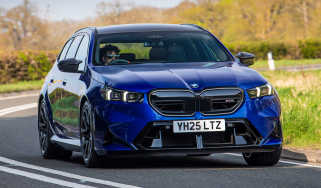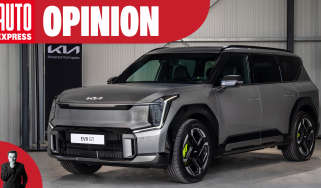‘Don’t believe the hype, self-driving cars are not coming this year’
Hugo Griffiths wants the term ‘self-driving’ used with much more caution, and accuracy when it comes to cars

Back when he was Transport Secretary, Chris Grayling began a keynote speech by proudly announcing he had arrived at the day’s conference in a Tesla, and hadn’t had his hands on the steering wheel for much of the journey because the car had driven itself. I’m no legal expert, but I imagine a traffic officer would have taken a rather dim view of that. Either way, his opening gambit was omitted from the day’s official transcript.
The Department for Transport has been under different leadership for a couple of years now but it’s clear there is still a fair bit of room for improvement in many ways, and its latest announcement about “self-driving” cars is a case in point. Let’s clear up exactly what the DfT is talking about here, because it sure as heck isn’t self-driving cars.
The idea is that, by the end of 2021, rules will have been changed to allow drivers whose cars have an Automated Lane Keeping System (ALKS) to take their hands off the steering wheel. But only on motorways, and only at up to 37mph, with ALKS steering the car in-between lane markings, and adjusting its speed depending on what it senses on the road.
Fine. Grand. Good idea. Let’s test this new technology in the real world, with real drivers, at limited locations and speeds, and when a very specific system (the ALKS functionality is set out in UN regulations) is fitted to a car.
But don’t call this self-driving technology. ALKS does not drive the car. The UN specifies it controls “the lateral and longitudinal movements of the vehicle”, and does this within a very narrow set of parameters (it’s only offered on one or two high-end cars, too). The driver must stay alert, monitor both the car and the road, and be ready to take over at any stage if ALKS comes across something it can’t handle. This is set out in the UN regulations, which state that the “system shall recognise all situations in which it needs to transition the control back to the driver”.
Just to give you an idea of how limited ALKS is, here are some examples the UN gives for “unplanned events”, which could cause the system to make a “transition demand” and hand full control of the vehicle back to the driver: “road construction, inclement weather, approaching emergency vehicle, missing lane marking, load falling from truck”. Yes, you read that right: ALKS might not work when the weather is bad. That doesn’t sound anything close to self driving to me.
If you think I’m getting hung up on semantics, just take a look on YouTube and social media to witness drivers - particularly in America, and particularly in Teslas - misusing the ‘Autopilot’ suite of assistance systems. I’ve seen videos of drivers asleep behind the wheel, leaving the driver’s seat and sitting in the back, reading newspapers - anything but paying proper attention to their surroundings and their two-tonne car travelling at 70mph. There have been fatalities because of such behaviours, and while drivers have to defeat safeguards such as steering-wheel sensors to pull off these stunts, much criticism has been levelled at Tesla for the implications bound up in the word ‘Autopilot’.
It’s not just me that has a problem with the Government’s announcement, either: Thatcham Research - which knows a thing or two about safety as it crash tests cars with Euro NCAP - has highlighted the limited functionality of ALKS for some time, responding to the DfT’s latest announcement by saying: “By calling ALKS automated our concern also is that the UK Government is contributing to the confusion and frequent misuse of assisted driving systems that have unfortunately already led to many tragic deaths.”
A transport minister yesterday told my colleague the Government would introduce ALKS in “a very cautious fashion”. That doesn’t square with the 10 mentions of “self-driving” I counted in the DfT’s press release.
Check out the safest cars on sale here...
Find a car with the experts




